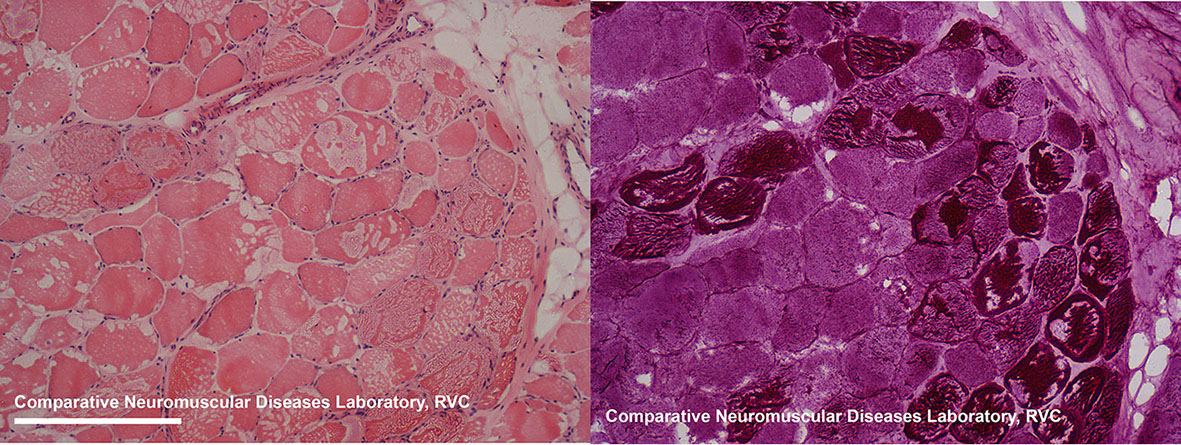RVC researchers reveal the molecular mechanisms that underlie a common genetic form of ‘tying up’ in horses.
In 2008, researchers at the University of Minnesota revealed the genetic cause of type 1 Polysaccharide Storage Myopathy (PSSM1), a common disorder associated with exertional rhabdomyolysis in horses. Affected animals have a mutation in a key enzyme (glycogen synthase) involved in energy metabolism in muscle and increased storage of glycogen and an abnormal polysaccharide (see images); horses that carry the mutation are prone to tying up and other muscle problems such as weakness. Until now, no-one knew the precise mechanism by which the mutation caused increased enzyme activity in muscle.
Now, researchers at the RVC’s Comparative Neuromuscular Diseases Laboratory (Dr Charlotte Maile and Professor Richard Piercy), in collaboration with other groups, have explained the molecular mechanism underpinning PSSM1. The mutant form of the enzyme is always active - it cannot be switched off. The mutation leads to a change in the enzyme’s structure which leaves it permanently active. This hyperactivity of mutant equine glycogen synthase explains the increased muscle glycogen and the accumulation of polysaccharide that leads to the clinical problems in affected horses. This significant step forward in the understanding of PSSM1 might lead to the development of novel treatments for this debilitating disease and it explains why some forms of treatment might be ineffective. RVC researchers are working towards improved treatments and management for this disorder.

The RVC’s work was partly funded by the Petplan Charitable Trust and the Morris Animal Foundation and was done in collaboration with the University of Copenhagen, University of Minnesota, Indiana University School of Medicine and Liverpool John Moore’s University.
The article can be read here: A highly prevalent equine glycogen storage disease is explained by constitutive activation of a mutant glycogen synthase. Biochim Biophys Acta. 2016 Aug 31. pii: S0304-4165(16)30321-X. doi: 10.1016/j.bbagen.2016.08.021.
You may also be interested in:
-
From cuddles to chaos: RVC launches national survey to explore the reality of Living with Dogs
The Royal Veterinary College (RVC), in collaboration with Battersea Dogs & Cats Home, has today …

